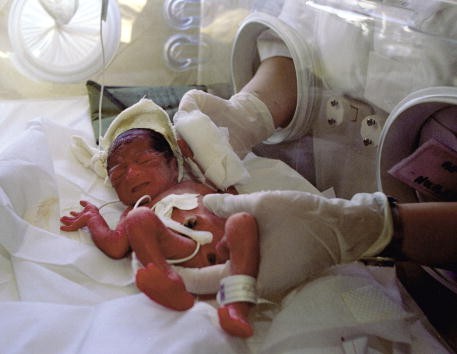
Premature babies are at a high risk of developing mental disorders as they grow, says a new research. Scientists noted that such problems may have resulted from the weakened brain connections that are responsible for the speech, attention, and emotions of a person.
Researchers at the Washington University School of Medicine in St. Louis studied the brain scans of babies, who were either premature or well-developed when born. A comparative analysis was made to rule out their similarities and to catch on the possible disparities that may cause such problems.
As reported in the press release, the brain is particularly 'plastic' at the early stages in life during which possible abnormalities may easily be resolved with proper intervention, says Principal investigator Cynthia Rogers, MD, assistant professor for child psychiatry. She further adds that until symptoms can be observed, none of these interventions may be applied - such may lead to more difficult problems when not addressed immediately. Thus, their research points towards creating objective measures that can help identify mental problems in premature babies and consequently improve cases through early interventions.
Rogers and her team used functional magnetic resonance imaging (MRI) and diffusion tensor brain imaging to compare 58 full term babies with 76 premature ones born at least 10 weeks early.
With the brain scans, they found out that some key brain networks - those involved in speech, attention, and emotion - were significantly weaker in premature babies. They also found differences in this group's resting-state brain networks, particularly the 'default mode network' and the 'frontoparietal network' - both of them, if found irregular, may pose a high risk of developing ADHD and other similar disorders. Further confirmation supported that conclusion, as the team continued to follow up the babies as they reached the age of two, and some at five.
With these findings, it may help scientists and doctors design appropriate methods on how to target abnormalities in preterm children and help improve their brain development. At present, researchers are heading towards the next years as they seek to understand the evolution of brain development in full-term versus preterm babies. They shall continue on investigating these children as they turn 9 to 10 years old.
Abstract of the study was presented at Neuroscience 2015, Chicago, Oct. 19, 2015.



